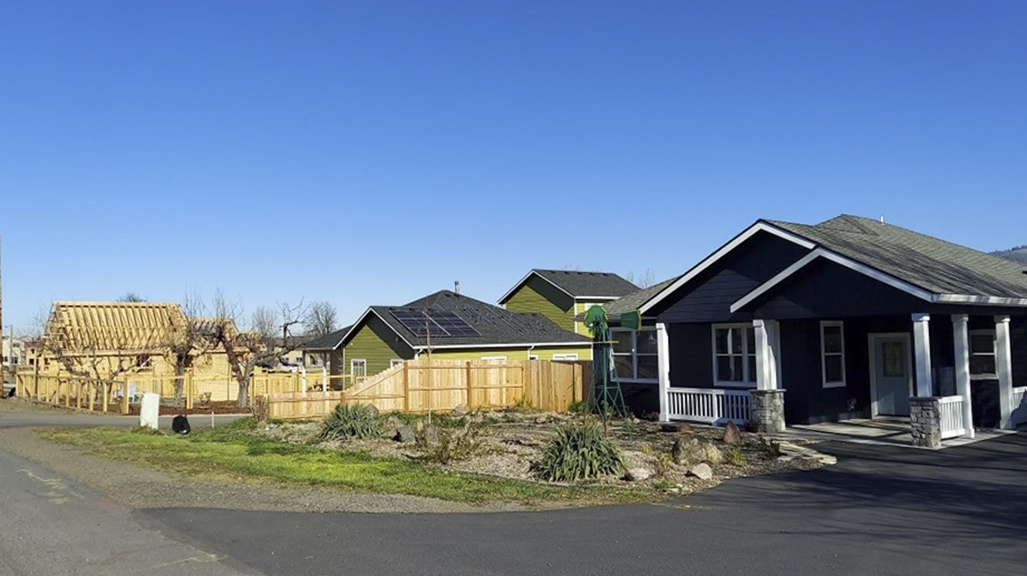Success Story
Wildfire survivors rebuild for a more resilient tomorrow
More than 5,000 structures and 1 million acres burned in the 21 wildfires that devastated Oregon communities over Labor Day weekend 2020. Two years later, rebuilding efforts are taking shape, and many survivors are rebuilding with energy efficiency and fire resiliency in mind thanks to a collaborative effort between Energy Trust and its partners.
“There was no model for addressing this level of devastation,” said Karen Chase, Energy Trust senior outreach manager. “Within days, Energy Trust began exploring immediate and long-term ways to support recovery for those whose homes or businesses were damaged or destroyed. We tapped into our longstanding relationships with communities, community-based organizations and state agencies to coordinate and maximize assistance for rebuilding.”
With these existing relationships, Energy Trust was in a unique position to make it easier for wildfire survivors to connect with available federal, state and other resources — easing the burden for residents who were overwhelmed and didn’t know where to begin.
Energy Trust coordinated with staff at Oregon Department of Energy (ODOE) and Oregon Building Codes Division (BCD) on incentive offers. They also worked together to produce a YouTube webinar on this topic, viewed by dozens of homeowners, builders and community leaders.
“Each organization serves as a conduit to what the other offers,” said Chase. “Working together we deliver a stronger, simpler-to-understand service. All of Energy Trust’s incentives can be stacked on top of assistance from ODOE and BCD, and all three groups provide enhanced support for residents with low incomes.”
After researching building codes across the West, Energy Trust identified and created additional incentives for energy-efficiency practices that also make homes more fire-resilient. Examples include triple-pane windows that add an extra layer between the interior of a home and a fire; exterior rigid insulation that is highly flame-resistant; and attic sealing that can stop fire embers from getting inside. These improvements offer residents additional peace of mind in communities where wildfires are an ongoing threat.
Today, displaced homeowners in wildfire-affected areas receive double Energy Trust’s regular incentives on construction of new energy-efficient homes. By investing in energy efficiency, residents enjoy homes that cost less to operate, have better air quality and are more comfortable in all seasons.
“From Phoenix to Estacada, Energy Trust has supported construction of 83 energy-efficient and fire resilient single-family homes,” said Scott Leonard, Energy Trust residential program manager. “Many residents are also choosing to incorporate solar power — often with battery storage that makes them less vulnerable during power outages. We expect to help more in the coming months because many survivors are just now receiving insurance settlements and Federal Emergency Management Agency (FEMA) funds.”
Across Oregon, new buildings are rising from the ashes. Nowhere is this more pronounced than the City of Talent, which lost 40% of its buildings.
“About 50% of our lost homes have been rebuilt or are in process,” said Jordan Rooklyn, Talent city manager. “One of the silver linings is that many homeowners are choosing to build energy-efficient homes with solar power. It brings us hope.”
